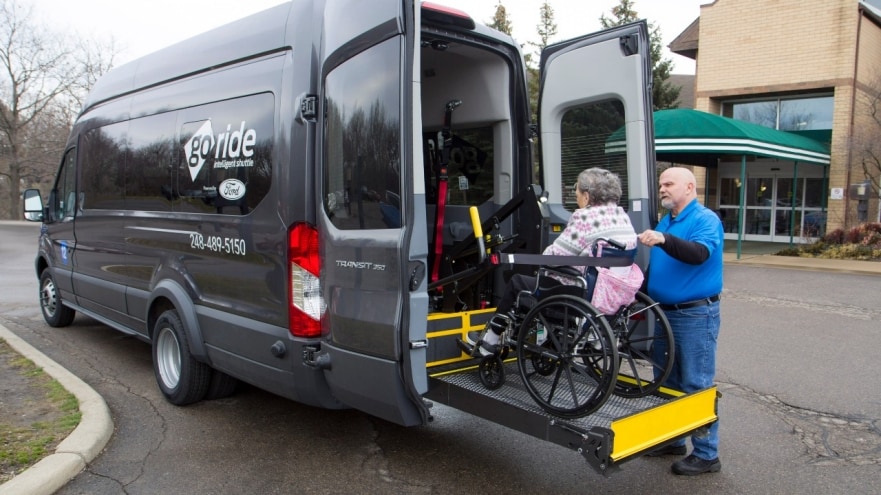Effective Medical Transportation Providers: Making Certain Safe Transit
Effective Medical Transportation Providers: Making Certain Safe Transit
Blog Article
Cost Effective and Accessible Medical Transport Options for each Scenario
In the world of healthcare, the capability to access clinical solutions is critical, yet the obstacle of budget-friendly and accessible transportation can usually impede people from obtaining required treatment. By discovering specialized medical transport services, area transport programs, ride-sharing and taxi solutions, non-emergency medical transport, as well as public transit and paratransit choices, individuals can discover opportunities that provide to their specific requirements and guarantee they receive the care they need.
Specialized Medical Transport Services
Specialized medical transport services play an essential role in guaranteeing risk-free and reliable transportation for individuals requiring specialized care during transportation. These solutions provide to patients with unique clinical demands, such as those needing continuous monitoring, customized devices, or medical treatments throughout transport. By making use of particularly complete cars and qualified medical employees, specialized medical transportation solutions guarantee that clients obtain the essential care while being transferred in between health care centers, homes, or various other places.
One trick aspect of customized medical transportation solutions is the focus on patient comfort and safety and security. Clinical transport teams are educated to deal with different clinical problems and emergencies that may emerge during transit, giving a higher level of treatment than typical transportation choices. In addition, these services typically supply door-to-door assistance, reducing the anxiety and pain that people might experience during transfers.
Area Transportation Programs
Having actually attended to the important function of specific medical transportation services in ensuring secure and efficient transport for individuals with distinct clinical requirements, the focus currently moves to analyzing Community Transport Programs - medical transportation. These programs play an important role in giving affordable and obtainable transportation remedies for the general populace, including elders, individuals with specials needs, and low-income families that might deal with challenges in accessing typical transportation choices
Community Transportation Programs incorporate a variety of solutions such as fixed-route buses, paratransit solutions, volunteer chauffeur programs, and ridesharing campaigns. These programs are often funded by neighborhood federal governments, non-profit organizations, or personal firms to ensure that individuals have trustworthy transportation choices to get to clinical consultations, grocery store shops, social activities, and other vital destinations.
Ride-Sharing and Taxi Solutions

One of the crucial benefits of ride-sharing and taxi services is their ease of helpful resources access. These services run 24/7, permitting individuals to travel to medical visits, drug stores, or hospitals at any moment of the day. In addition, ride-sharing and taxi solutions deal with people with mobility difficulties by using wheelchair-accessible automobiles upon demand.
In addition, ride-sharing and taxi solutions can be especially valuable for people residing in locations with restricted mass transit choices. By bridging the void in between home and medical care centers, these services play an important role in ensuring that every person has accessibility to necessary medical services.
Non-Emergency Medical Transportation

Non-Emergency Medical Transportation service providers commonly employ qualified workers that are experienced in assisting individuals with varying medical requirements. By using door-to-door solution, Non-Emergency Medical Transportation boosts the total accessibility of healthcare for individuals who may otherwise struggle to attend essential medical visits.
Public Transit and Paratransit Options
Public transit and paratransit options offer essential transportation solutions for people with varying movement needs, ensuring accessibility to essential locations such as medical facilities and consultations. Public transportation systems, including buses, trains, and metros, supply an economical and widely available mode of transportation for people seeking to get to clinical appointments. These solutions are especially advantageous for those that may not have accessibility to private lorries or need assistance find more because of mobility obstacles.
Paratransit solutions cater especially to individuals with specials needs who are not able to make use of conventional public transport. These services use door-to-door transport, accommodating individuals with mobility devices, pedestrians, or other wheelchair help. Paratransit cars are furnished with attributes such as wheelchair ramps and securement systems to guarantee the risk-free and comfy transport of guests with differing mobility demands.

Verdict

Report this page